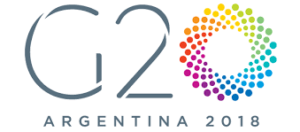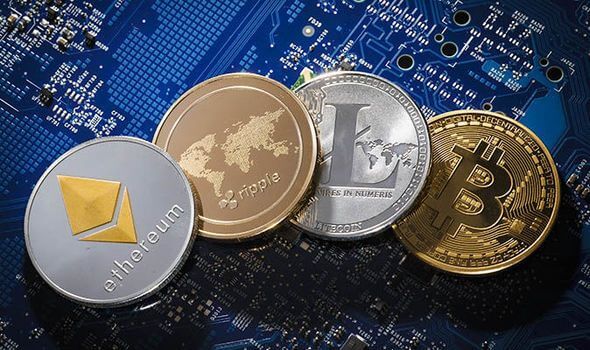
Positive news emerging from the G20 summit in Buenos Aires has further pushed up the price of bitcoin. The cryptocurrency has now recovered 20% of its value after a devastating week.
Finance ministers and central bank governors meeting at the summit reported they had had “positive” discussions during the closed-door meeting.
“The spirit of the discussion was very productive, and I agree that everybody left very pleased,” Federico Sturzenegger, governor of the Central Bank of Argentina said on Tuesday in a press conference immediately after the meeting.

This is the first time in weeks Bitcoin is going above $9000. At 12.23 UTC, the cryptocurrency was trading at $9,129 according to CoinMarketCap recovering from below $7,400 over the weekend.
It is understood that the meeting recognised some of the risks posed by digital currencies but agreed that banning them would not be the best way forward.
Taskforces have now been formed to advise on how to regulate the sector. They are expected to report back with proposals as early as July. Members will have “very specific recommendations on what to do,” Sturzenegger said.
The meeting also voted strongly in favour of including cryptocurrency discussions in multilateral meetings according to the governor. The major concern is its potential to be used for money laundering and for financing terrorism.
The same has long been raised including by Steve Mnuchin, US Treasury Secretary who said his ministry was closely monitoring cryptocurrencies for its potential use by criminals.
Cryptocurrencies received a much-needed boost on Sunday after the Financial Stability Board said the sector did not pose any risk for financial stability in a letter to the G20.
“The FSB’s initial assessment is that crypto-assets do not pose risks to global financial stability at this time. This is in part because they are small relative to the financial system,” Chairman Mark Carney wrote in the letter on March 18 ahead of the meeting.
Carney noted that the total market cap for cryptocurrencies was just 1% of the global GDP. “In comparison, just prior to the global financial crisis (in 2008), the notional value of credit default swaps was 100% of global GDP,” the letter said.
“Their small size, and the fact that they are not substitutes for currency and with very limited use for real economy and financial transactions, has meant the linkages to the rest of the financial system are limited,” the letter continued.
It however warned that cryptocurrencies could pose a risk in future if they became more widely used or is “ interconnected with the core of the regulated financial system.”
The letter also noted that cryptocurrencies raised issues on consumer and investor protection.
Several regulators have in the past called for anti-money laundering efforts. The Japanese delegation is said to have called for more cooperation in this area according to Reuters.
In February European Commission Vice President Valdis Dombrovskis said that exchanges and wallet providers should be governed under the “Anti-Money Laundering Directive.”
Self Regulation
Cryptocurrency players and investors have also recently come forward with proposals on how to regulate the sector. CryptoUK, an association of among other cryptocurrency exchanges, brokers, merchants last week came forward to self-regulate.

Members include Coinbase and eToro. The body hopes that its code of conduct will form a blueprint for the government. CryptoUK does not, however, bring initial coin offerings under its ambit.
Tyler and Cameron Winklevoss, twins who made billions from their early bitcoin investments have also proposed a self-regulating body called the Virtual Commodity Association. Like CryptoUK, the non-profit organization is meant to develop industry standards and prevent fraud.
Over $60 billion was wiped from the market in the last two weeks after increased regulatory scrutiny. The SEC subpoenaed some US exchanges and insisted they must register with it.
Japanese regulators also imposed various penalties on various exchanges on various grounds including inadequate security controls to misuse of customer funds. Some exchanges were shut for at least a month.
Mt. Gox trustee Nabuaki Kobayashi also dumped a huge amount of bitcoin he holds in the open market triggering a domino effect said to have contributed to the February crash. Criticism of the sector from prominent personalities in traditional financial markets and their wide media coverage have also contributed to market declines.

